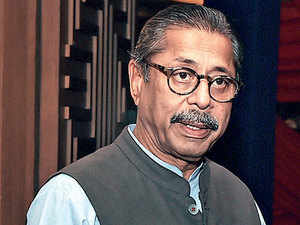 Agencies
AgenciesWhich Covid-19 vaccine candidates are the frontrunners in India?
There are many leading candidates and none of them has so far been approved officially. If you look at the entire landscape, the Pfizer vaccine needs some minus 70 degree Celsius to preserve. Also, it has limited producing capacity. Even the one being produced by Moderna will require very low temperatures. It won’t be pragmatic to use one of those in a country like ours because of ultra-cold storage requirements. Then comes the Oxford-AstraZeneca vaccine for which the temperature problem is not there (it requires only 2 to 8 degree C). A simple freezer will do. Then the question comes, should we have one vaccine or two, or three? Also, we have the Russian vaccine (Sputnik-V). That will also work in Indian conditions. Then there are more.
Each company has claimed a level of effectiveness. The approval authority has not given its nod as yet. Also, we don’t know yet how long the immunity will last. Only time will tell that. From what it looks, the Oxford-AstraZeneca vaccine will turn out to be the most suitable for Indian conditions. Sputnik appears to be a close second.
Assuming a vaccine is available, how challenging will be its distribution?
As far as distribution is concerned, one has to go down to block and village level. The logistics will be in getting the vaccine and getting it to where it requires. Also, the vaccine is injectable. That means, in today’s environment, only doctors and nurses can handle it. Maybe, we can increase that numbers by roping in third and fourth-year medical students, if required. Then the vaccine will be multi-vial. This means, every vial will have, say, 20 doses. So, one has to take the first syringe, draw the right amount and inject. For that, you will need support staff.
If the vaccine is a double-dose one, we will need at least 2 billion doses or more. The issue is as much of production as of distribution. Now, the question is, who should we first give it to? Naturally, the frontline workers should get it first. Once they are immunised, they will be safer to treat Covid patients. Then will come the elderly with comorbidity and then those below 50 years with comorbidity. As the vaccine will be in double doses, the second dose needs to be factored in at the outset. Otherwise, the first one too will be a complete waste. At present, we don’t know how many doses will be available. So, to say it should be for 50-plus or 60-plus people is difficult at this stage. Right mathematical calculation will be required to balance the demand and supply. Also, we have to clearly define comorbidity. Should we include patients with stable diabetes, or any heart patient? That algorithm needs to be created accurately. We need to use AI (artificial intelligence) for that. A simple manual intervention could lead to manipulations.
How should the private sector be involved in the process?
First, the private sector must and will assist the government in delivering the vaccine. Second, on the question of vaccination in private hospitals, I think, the government will take the same route as it did in Covid testing (RT-PCR). Soon after the Covid outbreak, the government realised instead of having a long waiting list, why not recruit and recognise private labs for testing? And it worked. A large capacity got created immediately and the government regulated the rates. Just like in testing, private facilities should also be used for vaccination. Those who can pay should pay. And people who can’t should be treated free. Why should the state subsidise those who can pay? Why should there be a burden on government resources? But yes, the government should cap pricing.
What do you think is more difficult - conducting a nation-wide election or vaccinating India?
The way we have been conducting our elections shows we are capable of handling such a mammoth exercise. But the distribution of Covid vaccine is a little more complicated than conducting an election. Here, many people will like to jump the queue. In an election, one identity card — the voter ID — is good enough. The electoral list is prepared well in advance, verified and edited. In this case there will be many questions. Who are you? Are you a frontline worker? How do we identify you?
Read More News on
Download The Economic Times News App to get Daily Market Updates & Live Business News.
Read More News on
Download The Economic Times News App to get Daily Market Updates & Live Business News.













 Get Unlimited Access to The Economic Times
Get Unlimited Access to The Economic Times
